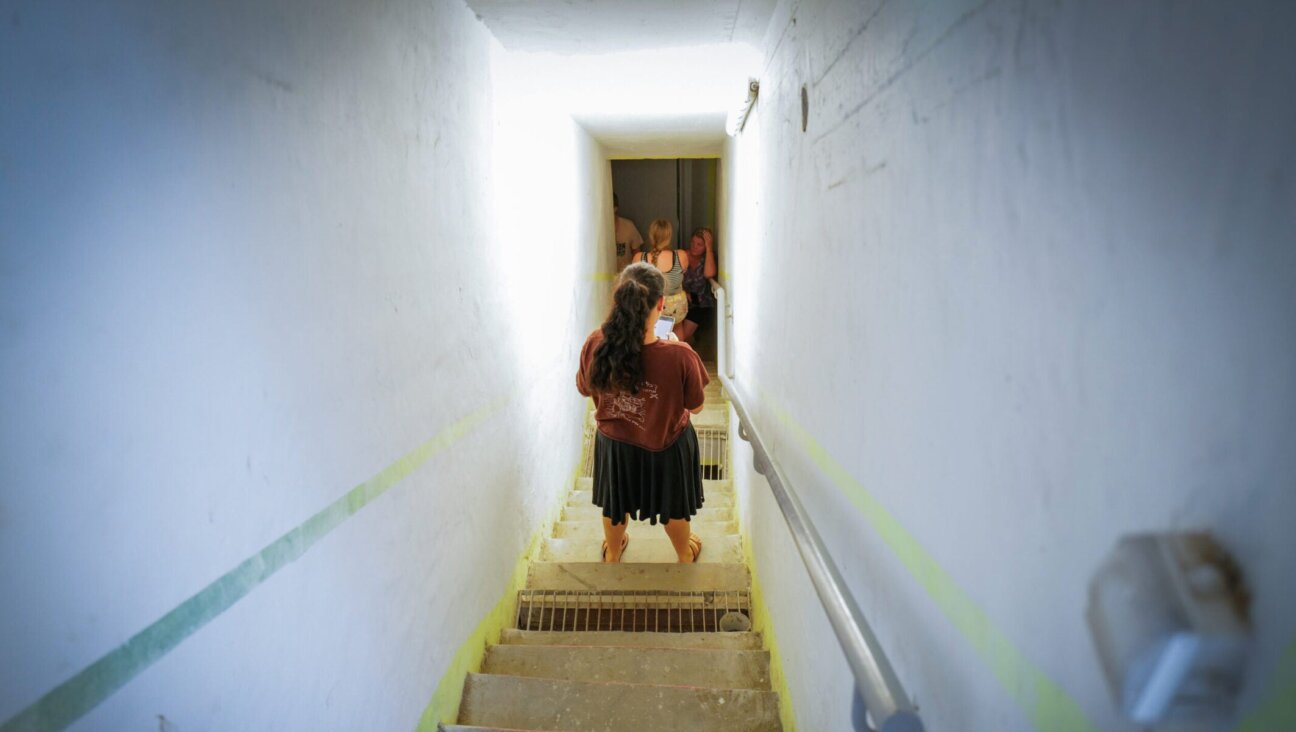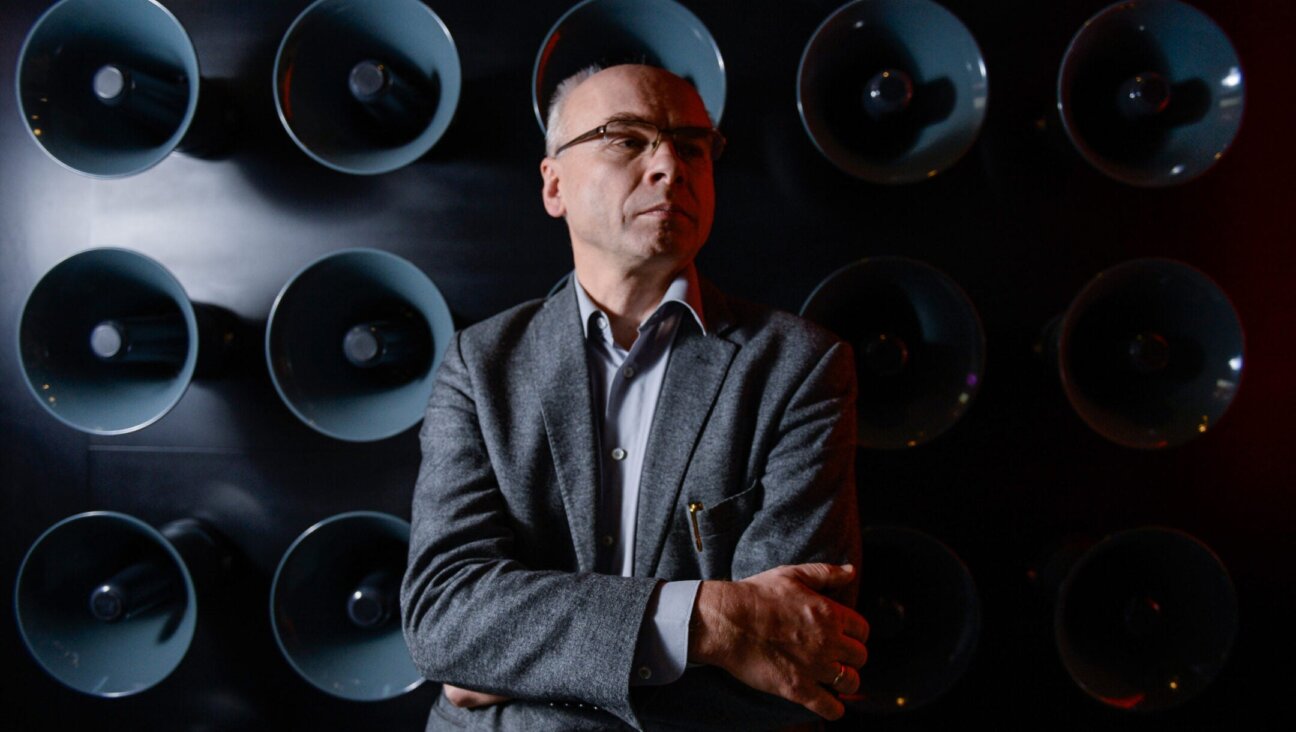Chewing the Fat in Mecca, Medina, Damascus…

Graphic by Angelie Zaslavsky
The Media Relations Department of Hizbollah Wishes You a Happy Birthday: Unexpected Encounters in the Changing Middle East
By Neil MacFarquhar
Public Affairs, 359 pages, $26.95.
Having seen more than enough violence during a decade-long stint as a reporter in the Middle East, Neil MacFarquhar branched out from his beat as Cairo Bureau Chief at The New York Times to write a book about the warmer, fuzzier, more moderate aspects of the Middle East.
Instead of following a mainstream media intent on focusing laser beams on the bloodshed and destruction permeating the region, he wanted to tell other, more hopeful stories: to inject them into public discourse. MacFarquhar felt the world needed to know that there are many “ordinary Arabs who are aware that their nations are out of step with the rest of the world, that they are fed up with both the incompetence of their rulers and the unpredictable quality of their lives. They crave normalcy but despair at ever having the wherewithal to attain it in the face of an oppression that brings at least jail terms and even death to anyone trying to organize dissenters.”
A quick glance at MacFarquhar’s biography offers some clues as to what may have drawn him to this endeavor. Rugged, handsome and 6 foot 3, he never had a solid sense of any single place as home. He spent his childhood years living in a walled-off compound in Libya, where his father worked as an engineer for Esso. While still a teenager, he was sent away to the best boarding schools in the United States before eventually earning his degree in international political economy from Stanford University. His worldview seems to have developed like President Obama’s: exposure from a young age to people from different religions and cultures opened up his mind to different states of being and thinking. Becoming an international reporter for the Times allowed him to pursue his inquiries at the highest level.
Appearing throughout this unusually compelling book are lengthy interviews with a wide variety of clerics, high-ranking members of various royal families, intellectuals and average citizens looking for signs of progressive change, but the overwhelming picture he paints is toxic. He travels throughout Saudi Arabia, Egypt, Syria and Jordan, finding countries ruled by royal families flush with money but remain embedded in unholy unions with fundamentalist clerics who control the lives of millions. There is no freedom of the press or right to organize or equal rights for women, and education options are severely limited or nonexistent. Different Islamic factions espouse hatred and mistrust of one another as each lays claim to an exclusive stronghold on Islamic truth.
Perhaps most unsettling is the animosity toward Westerners that infiltrates all levels of society. The author records his own bewilderment when, at a dinner party in Saudi Arabia, a college professor of Islamic law turned to him unprovoked and said in exasperation, “Well, of course I hate you because you are a Christian, but that doesn’t mean I want to kill you.”
At another event he attended, a 2004 seminar in Cairo called “Islam and Reform,” led by a group of moderate Muslims, crowds began to gather and shout at the panelists: “You are just agents for America. What kind of Islam are you talking about? Are there any Islamic scholars here? Where are they? You are Jews! You are wrecking Islam and rotting the minds of the young.”
With the obstinacy of a psychotherapy patient denying what he himself has revealed, MacFarquhar keeps looking for moderate voices. He finds some solace in the unusually brazen written work of Saudi Prince Bandar, who has admitted that the problems in Saudi Arabia have “nothing to do with America or Israel or the Christians or the Jews…. So let us stop blaming others while the problem comes from us.”
Even Bill Maher of HBO’s “Real Time” seemed to hit a more genuine, although politically incorrect, note when he said recently to a Muslim guest on his television show: “Please don’t tell me that we’re all people and we’re all the same and we’re all equally bigoted. I mean, excuse me, in America, yes, we do have our problems, and you know the Catholics are as backwards as it gets. The debate on women is whether they should be priests. In the Muslim world, the debate is should we stone them to death because they talk to a man who’s not their husband. Okay, civilizations are not equal.”
Neil MacFarquhar is a gifted writer and a natural storyteller and has used his unprecedented access to illustrate for us a vivid rendering of the Middle East in all its complexity, congestion and paranoia. But he fails to integrate his own findings into his analysis, and this makes the reader wary.
Most of us accept that the media has sometimes been guilty of portraying all Muslims as violent and barbaric, and this most certainly is a gross distortion. Yet, the vitriolic threads permeating the societies that MacFarquhar describes are deeply disturbing. In particular, with regard to antisemitism, the author remains peculiarly and uncomfortably silent, never once mentioning throughout his entire narrative the corrosive effect this has had on the entire region and its people. This oversight seems unforgivable and makes the reader wonder whether MacFarquhar’s attachment to his own preset agenda may have distorted his otherwise compelling book.
Elaine Margolin is a freelance book reviewer and essayist for The Jerusalem Post, the San Francisco Chronicle and many other publications.
















